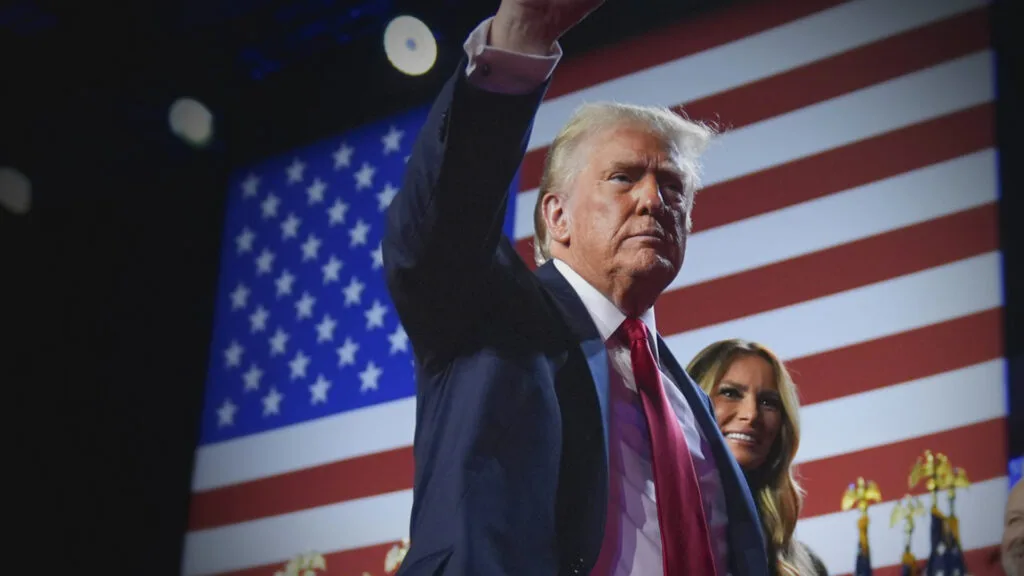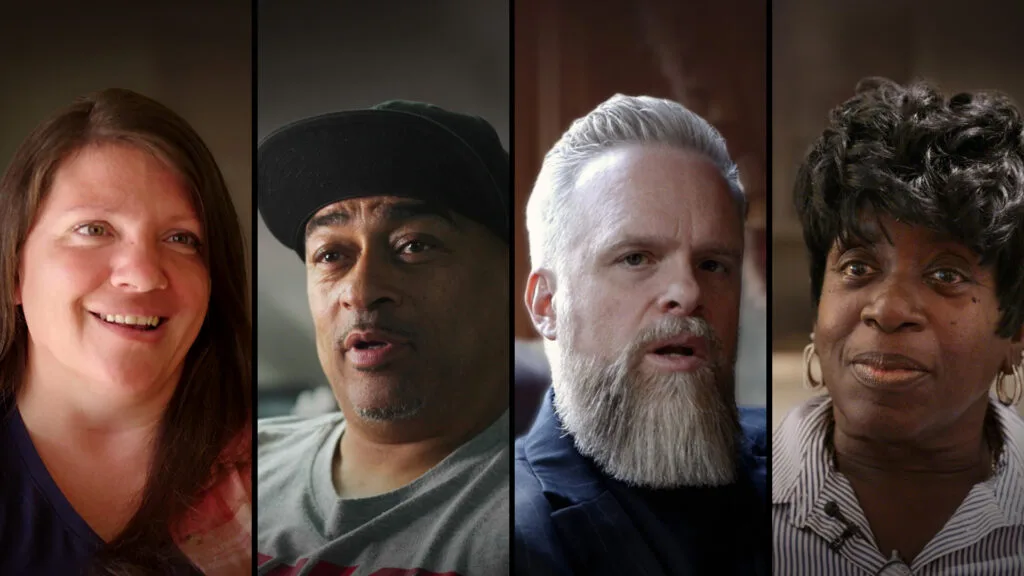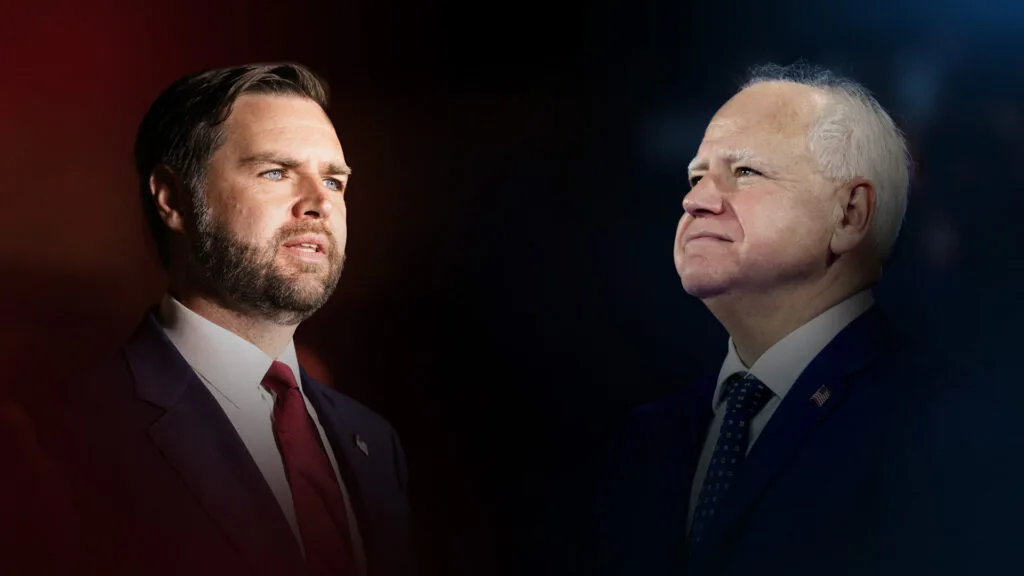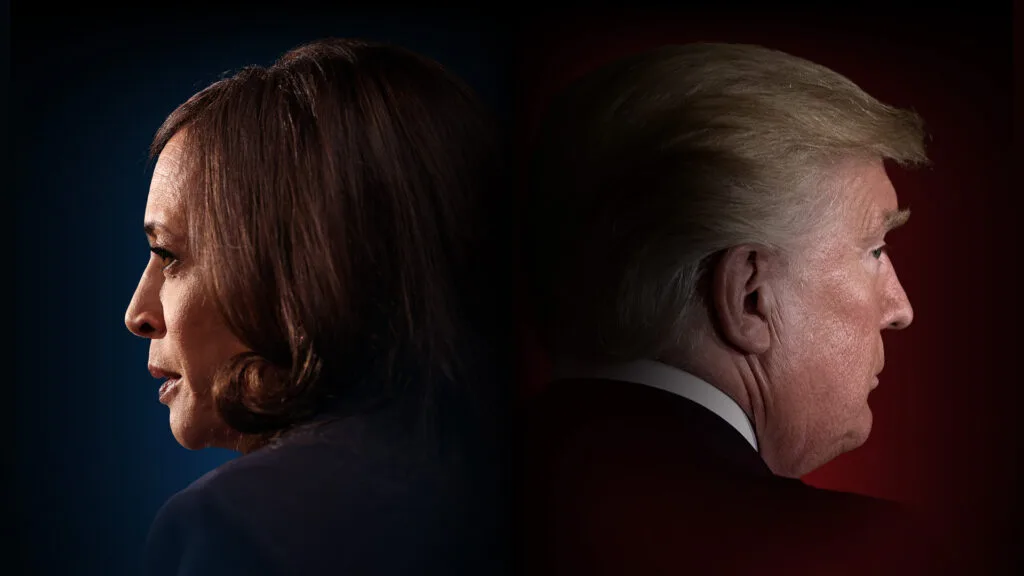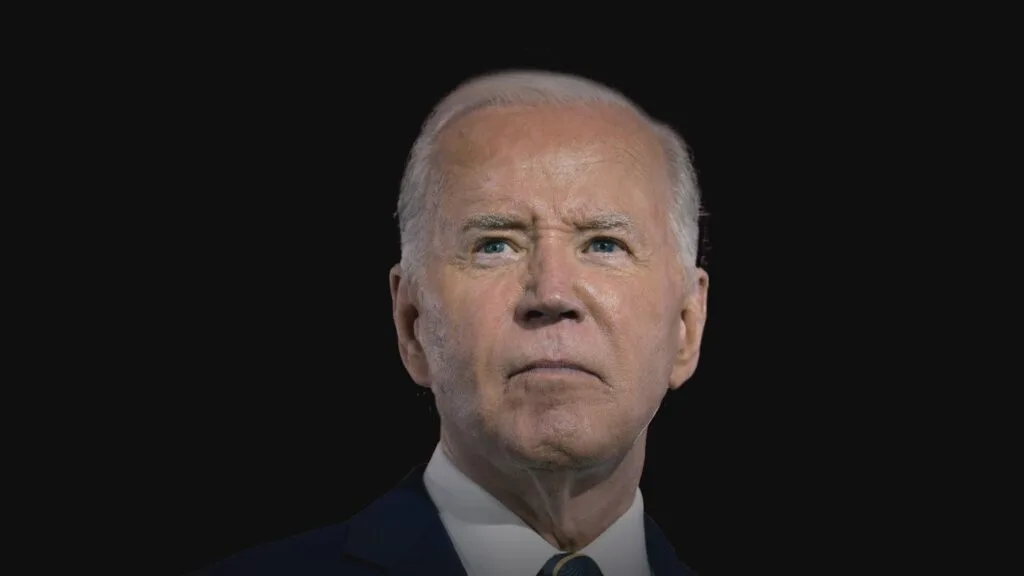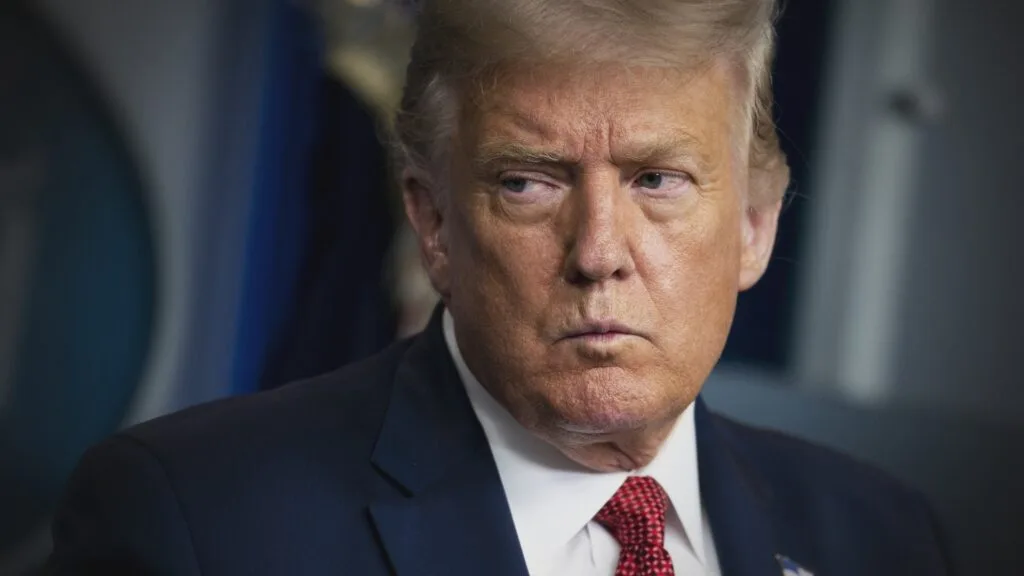A Look at Former Vice President Dick Cheney’s Legacy, Following His Death at 84
Former Vice President Dick Cheney, who pushed to expand executive power and was a key force behind the U.S.-led invasion of Iraq, has died. FRONTLINE chronicled Cheney’s influence in a number of documentaries.
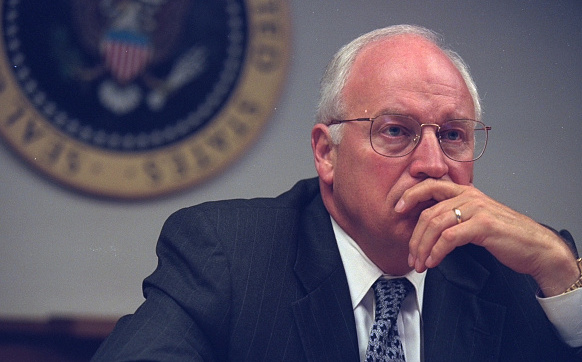
November 4, 2025
Share
Dick Cheney, who pushed to expand executive power as vice president to George W. Bush and was a key force behind the U.S.-led invasion of Iraq, has died at 84 of complications from pneumonia and cardiac and vascular disease, his family said in a statement released Tuesday.
“We are grateful beyond measure for all Dick Cheney did for our country,” the statement said. “And we are blessed beyond measure to have loved and been loved by this noble giant of a man.”
Cheney’s career on the national political stage was expansive even before he became widely regarded as the most powerful vice president in history. He served as chief of staff to President Gerald Ford in the 1970s, and then as Wyoming’s congressman for more than a decade. As secretary of defense under President George H.W. Bush, Cheney played a key role in shaping the 1990-91 Gulf War in response to Iraqi President Saddam Hussein’s invasion of Kuwait.
But as FRONTLINE examined in a number of acclaimed documentaries, including 2006’s The Dark Side and 2007’s Cheney’s Law, it was under President George W. Bush, in the wake of the Sept. 11 attacks, that Cheney became one of the most influential and controversial figures in U.S. politics.
Cheney saw Iraq as an important part of a broader plan to remake the Middle East and project American influence worldwide, the documentaries reported. And as a dominant member of the Bush administration, he pushed to bring the war on terror to Iraq, claiming Hussein had weapons of mass destruction that were never found; to transform America’s intelligence agencies; and to expand presidential wartime powers.
“The vice president believes that Congress has very few powers to actually constrain the president and the executive branch,” former Justice Department attorney Marty Lederman told FRONTLINE in the Peabody Award-winning Cheney’s Law. “He believes the president should have the final word — indeed the only word — on all matters within the executive branch.”
FRONTLINE’s documentaries from Michael Kirk and his team unpacked Cheney’s penchant for secrecy and his role in a series of post-9/11 legal decisions that saw the Justice Department interpret executive power in an expansive and extraordinary way, granting President Bush the power to detain, interrogate, torture, wiretap and spy — without congressional approval or judicial review.
“I think the vice president felt he kind of looked death in the eye on 9/11,” Richard Clarke, a former member of the White House National Security Council, told FRONTLINE in The Dark Side, which chronicled Cheney’s role as the chief architect of the war on terror and his battles with Congress and the CIA.
The documentary’s title was taken from Cheney’s comments in the days after 9/11 that “it’s going to be vital for us to use any means at our disposal to achieve our objective,” and that “We have to work toward the dark side, if you will. We’ve got to spend time in the shadows in the intelligence world.”
Said Clarke, “Three thousand Americans died. The building that the vice president used to work in blew up, and people died there. This was a cold slap in the face. This is a different world you’re living in now. And the enemy’s still out there, and the enemy could come after you. That does cause you to think things differently.”
Watch The Dark Side, Cheney’s Law and these other selected FRONTLINE documentaries for a look at Cheney’s roles in the U.S. response to 9/11, the broad expansion of presidential power that followed, the “enhanced interrogation” program widely criticized as torture, and the wars in Afghanistan and Iraq and their aftermaths.
Truth, War and Consequences (2003)
Did America rush into a war in Iraq for which it was unprepared?
The Dark Side (2006)
Investigating Vice President Cheney's role as chief architect in the war on terror and his internal war with George Tenet's CIA
Endgame (2007)
From the day we got in, the plan was to get out as soon as possible. Four years later, we're still looking for an exit strategy
Cheney’s Law (2007)
Inside the bruising closed door battles within the Bush administration over the power of the presidency and the rule of law
Bush’s War (2008)
The inside story of the war that will define a presidency - a war that no one expected, and no one planned for
United States of Secrets (2014)
How did the government come to spy on millions of Americans?
Losing Iraq (2014)
FRONTLINE examines the unfolding chaos in Iraq: What went wrong? How did we get here? And what happens now?
Secrets, Politics and Torture (2015)
The dramatic story of the fight over the CIA's controversial interrogation methods, widely criticized as torture
The Secret History of ISIS (2016)
The inside story of the creation of ISIS, and how the U.S. missed the many warning signs
America After 9/11 (2021)
FRONTLINE traces the U.S. response to the September 11 terrorist attacks and the devastating consequences that unfolded across three presidencies
More to Explore
- In an interview for the 1996 FRONTLINE documentary The Gulf War, Cheney spoke about his role as defense secretary under the first President Bush — including how he would have recommended moving forward with the war even if Congress hadn’t authorized it, and how, had the U.S. ousted Hussein at that point, “you then have to accept the responsibility for what happens in Iraq, accept more responsibility for what happens in the region.”
- Cheney, who served at the helm of the gas and oil services company Halliburton in between the first and second Bush administrations, spoke with FRONTLINE about energy policy in an interview for the 2001 film Blackout, saying he saw his experience as an asset: “I mean, if you want to do brain surgery, you go get a brain surgeon. I don’t want to compare what I’ve done to that level of complexity, but the fact of the matter is we need to have some people around who’ve got some experience.”
- In an interview conducted for the 2001 documentary The Future of War, then VP-candidate Cheney discussed military readiness, telling FRONTLINE, “We have advantages that nobody else has, when you think about our military capacities and capabilities. But what I worry about is homeland defense — the notion that somebody who wishes us ill will find other ways to get at our vulnerabilities.”

Related Documentaries
Latest Documentaries
Explore
Policies
Teacher Center
Funding for FRONTLINE is provided through the support of PBS viewers and by the Corporation for Public Broadcasting, with major support from Ford Foundation. Additional funding is provided the Abrams Foundation, Park Foundation, John D. and Catherine T. MacArthur Foundation, Heising-Simons Foundation, and the FRONTLINE Trust, with major support from Jon and Jo Ann Hagler on behalf of the Jon L. Hagler Foundation, and additional support from Koo and Patricia Yuen. FRONTLINE is a registered trademark of WGBH Educational Foundation. Web Site Copyright ©1995-2025 WGBH Educational Foundation. PBS is a 501(c)(3) not-for-profit organization.




